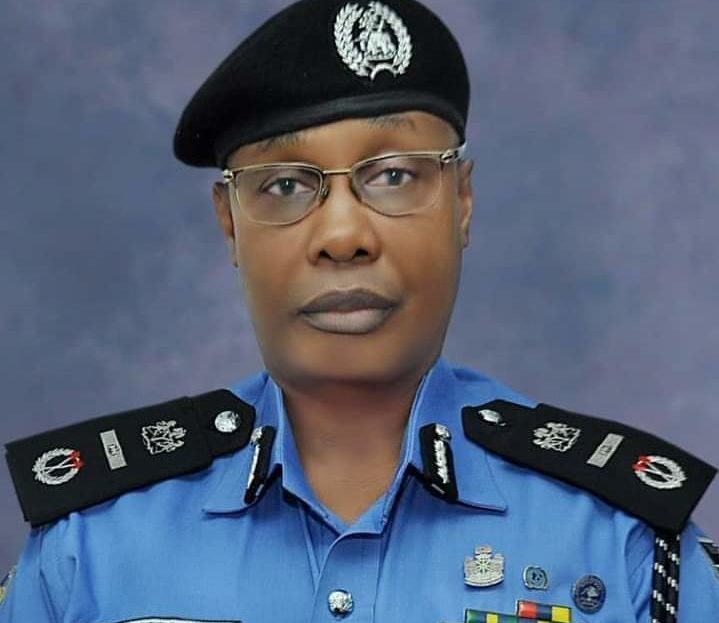Stop the extrajudicial killings
On Saturday January 29, 2022, the Lajolo community in Ilorin-East Local Government Area of Kwara State rose in protest, accusing the Nigeria police of extrajudicial killing of its two teenagers who were shot by stray bullets in a shootout with cultists in the area populated by students of the Kwara State Polytechnic. Regrettably, this community […]

Inspector General of Police (IGP), Usman Alkali Baba
On Saturday January 29, 2022, the Lajolo community in Ilorin-East Local Government Area of Kwara State rose in protest, accusing the Nigeria police of extrajudicial killing of its two teenagers who were shot by stray bullets in a shootout with cultists in the area populated by students of the Kwara State Polytechnic.
Regrettably, this community is not alone. In November last year, the human rights group, Centre for Democracy and Development (CDD), released a damning report, saying that 13,241 Nigerians were “unlawfully killed by security forces in 10 years.’
The report titled ‘Democracy Watch Reports,’ noted that unlawful killings have become commonplace in the country since 1999, and that many of these killings were perpetrated by security forces. The CDD leadership said while presenting the report that, “It is pertinent to state that extrajudicial killings by state actors have become the primary cause of death in the country. In fact, state actors have cumulatively killed 13,241 people since 2011.”
Also, data from various national newspapers collated by Daily Trust showed that in the last one year, 108 persons have been killed by the nation’s security forces, including the Armed Forces of Nigeria, Police, Nigerian Security and Civil Defence Corps (NSCDC), Nigeria Immigration Service, vigilantes, even Civilian JTF, Ebubeagu South East Security Network and Amotekun.
And these innocent Nigerians died in the hands of security agents either by point blank shooting, stray bullets or torture.
What is not debatable is that these killings are a violation of Section 33 (1) of the Nigerian Constitution which provides that persons living in Nigeria shall have a right to life and no one shall be deprived intentionally of his life unless in execution of the sentence of a court of a criminal office of which he has been found guilty.
However, the number of persons who have lost their lives through unlawful acts of commission or omission by agents of the Nigerian State, contrary to the provisions of Section 33 of the Constitution has been on the increase in recent times.
What is disheartening is that perpetrators of these unlawful killings largely go unpunished because the Nigeria Police Force Order 237, allows officers to use lethal force, thus enthroning a culture of impunity. Also, the Terrorism (Prevention) (Amendment) Act 2013 permits excessive use of force as law enforcement officers are allowed under sub-section (2) to “use such force as may be reasonably necessary for the exercise of the powers.”
These killings are condemnable and make many believe that the state does not place a premium on the lives and dignity of the citizens, which fits into the pattern of the dehumanisation of human lives in the country. A situation where agents of the state lead in cheapening the lives of the citizens calls for outright redirection and reorientation of the nation’s military and para-military services, including the vigilantes.
Whatever their reasons, these agents must realize that the overriding responsibility of the State is to secure the lives of the citizens, and disagreements and arguments should not be the cause to draw the gun and shoot unlawfully, no matter the provocation.
Immediately, the state should begin to pay compensation for every victim of extrajudicial killings as the use of force and the resultant extrajudicial killings are violations of human rights. Towards this, the National Human Rights Commission, which is saddled with protection of human rights in the country, needs to do more in line with its mandate by assisting victims and seeking appropriate redress and remedies on their behalf as mandated by the Act establishing it.
There should be enhanced strengthening of accountability mechanisms among security forces. In this direction, all past reports of investigations on such killings should be made public, all complaints duly investigated and violators prosecuted.
Also, concrete steps must be taken to implement the earlier recommendation to amend the Police Force Order 237, which provides for a much wider scope for the use of lethal force than is permissible under international law and standards.
Moreover, the federal and state governments must realise that they have an obligation under international law to fully conduct independent investigation of extrajudicial killings and the perpetrators of these dastardly acts are arraigned before a competent court to answer for their actions.
